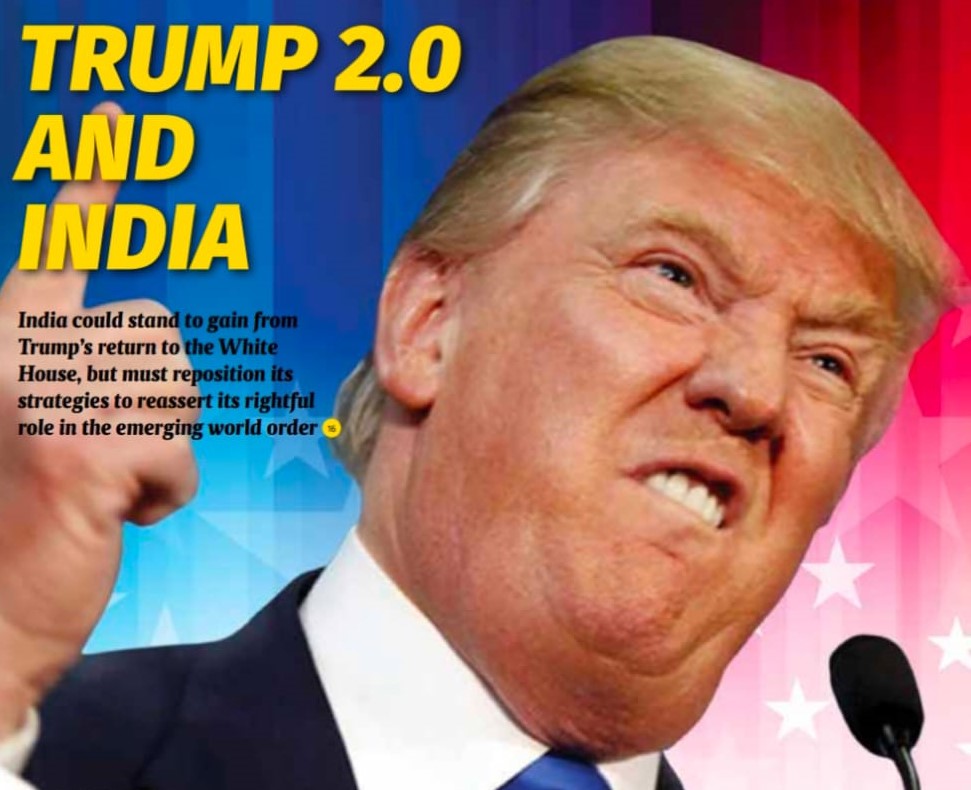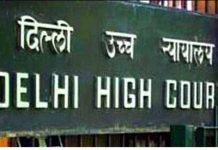
As Donald Trump prepares for a return to power, the world, including India, braces for the return of a figure who thrives on unpredictability. For India, managing relations with Trump is far from simple. On one hand, the U.S. President often praised Prime Minister Narendra Modi, even calling him “my good friend.” On the other hand, Trump’s actions and rhetoric have repeatedly cast India in a less flattering light. The cover story by senior journalist Gopal Misra “Trump 2.0 and India” analyses how India couldfind new opportunities with Trump back in the White House, but will need to reposition its strategies to reassert its rightful role in the emerging world order.
Awards-winning journalist and noted author Kumkum Chadha in her column for Tehelka “That Special Bond” traces PM Modi’s equation with Trump for whom he had earlier cheered ‘abki baar Trump sarkar’. Also, an incisive column exclusively for Tehelka by Dr. Anil Singh, Editor of STAR Views, who is currently in Washington D.C. explains for our readers the implications of Trump’s comeback for global geopolitics.
Ironically however, Trump, during his campaign, had criticized India’s trade practices, particularly its heavy tariffs on U.S. goods, warning of a “tit-for-tat” policy to bolster American wealth. Additionally, Modi’s “Make in India” campaign could clash with Trump’s “America First” agenda. While Modi aims to boost Indian manufacturing and attract foreign investment, Trump’s protectionist policies may curb those ambitions, especially in sectors where U.S. interests dominate.
Optimists hope that on the diplomatic front, India will likely hope that Modi’s rapport with Trump can smooth over potential areas of friction, such as the ongoing dispute over Gurpatwant Singh Pannun and related matters. However, when dealing with Trump, unpredictability is the only constant.
India will also be closely watching developments in Canada, where the Trudeau government’s handling of anti-India elements has strained relations with New Delhi. The recent violence at the Hindu Sabha Mandir in Brampton exposed the Canadian government’s inability—or unwillingness—to address growing tensions between pro-Khalistan activists and the Indian community. The incident underscores the precariousness of India-Canada relations, which have been deteriorating since the 2020 murder of Khalistani activist Hardeep Singh Nijjar. Canada’s failure to take a firm stand against these anti-India forces is seen as a diplomatic failure.
At a time when Canada is struggling to manage internal divisions related to Sikh separatism, India will be hoping that a second Trump administration does not stoke further instability in the region. The situation is complex, and Modi’s relationship with Trump may offer some diplomatic leverage, but India must remain cautious. Given Trump’s unpredictability, New Delhi must be prepared for any eventuality.
Donald Trump’s return to power would undoubtedly present challenges for India on multiple fronts—trade, diplomacy, and immigration. While India may find some opportunities to leverage Modi’s rapport with the U.S. president, the overarching unpredictability of Trump’s policies makes it hard to chart a clear course.












